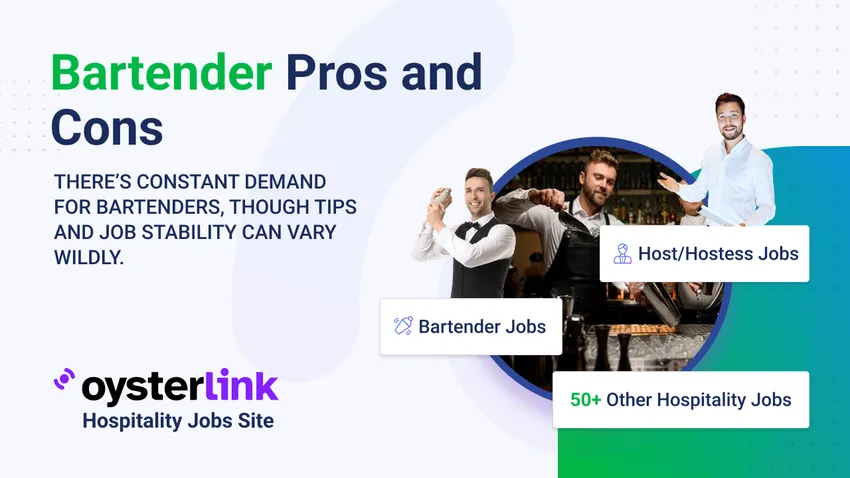Bartender pros and cons are important to understand before stepping into the role.
In this article, you’ll learn the key skills you’ll need, the bar job challenges to expect, and how career advancement in bartending works.
Bartender Pros and Cons: What You Should Know
Understanding the core Bartender pros and cons is the best way to decide if this fast-paced job fits your lifestyle.
Bartending offers great earning potential through tips and a highly social work environment.
But late nights, physical demands, and unpredictable income can make it challenging. Knowing both sides helps you step into the role with realistic expectations.
Essential Bartender Skills for Everyday Success
Strong Bartender skills go far beyond knowing drink recipes. You’ll need great customer service, multitasking, and quick problem-solving to navigate busy shifts.
Physical stamina and good communication also play a huge role behind the bar. Mastering these skills can make the job smoother and more enjoyable.
Bar Job Challenges You’ll Likely Face
There are plenty of bar job challenges, from handling drunk customers to keeping your energy up during long, late-night shifts.
The work can be physically demanding, especially in crowded, fast-moving environments.
Tips—and therefore income—can vary drastically from day to day. With the right mindset, though, many of these challenges become manageable.
Career Advancement in Bartending: Your Path Forward
Real career advancement in bartending is possible if you build experience and stay committed. Many Bartenders grow into roles like Head Bartender, Bar Manager, or Beverage Director.
Developing skills in leadership, inventory, and menu creation can open new opportunities. Certifications and continuous learning can also accelerate your progress.
How Bartender Pros and Cons Impact Work-Life Balance
The biggest Bartender pros and cons often show up in your day-to-day routine. Flexibility can give you time for side jobs or personal hobbies, but late-night shifts may make social life tricky.
Your sleep schedule may also shift dramatically depending on the bar’s hours. Finding balance depends on your lifestyle and personal priorities.
Are Your Bartender Skills Enough for Long-Term Growth?
Even strong Bartender skills may not guarantee long-term stability in the industry. Advancement often requires learning management, hospitality operations, and leadership skills.
While bartending can be a stepping stone to bigger roles, the career path isn’t as structured as other industries. Staying committed to growth can help you stand out.









Loading comments...